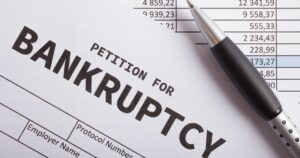The joint-owned property, such as that owned by a married couple, can affect how a bankruptcy is completed. If one spouse is going to file for bankruptcy, but there are assets in both of your names, it is imperative you speak with an attorney about these properties; especially when it comes to the family home.
Considering Your Bankruptcy Options
When you file bankruptcy, you have two types that you can file: Chapter 7 or Chapter 13. Chapter 7 means that the trustee overseeing your case can take all property not exempt under state and federal bankruptcy codes.
Therefore, any valuable nonexempt property can be seized by the bankruptcy trustee, sold, and the proceeds distributed amongst your creditors until portions of those debts are satisfied.
Once your trustee has handled all nonexempt property, then the rest of your debts are cleared out via discharge. This process will take four to six months, depending on the complexity of your assets.
If you were to file for Chapter 13, however, you do not have to worry about exemptions. Instead, you can keep your property, and make payments through a repayment plan. The repayment plan then allows you to pay back all or some of the debt that you file under Chapter 13.
Chapter 13 takes longer, but also allows you to keep assets – including joint-owned family homes. However, you will take anywhere from three to five years to complete the process. The amount you pay back and length of your repayment depend on your income.
When you File Jointly, What Happens?
You can file alone or together with your spouse for Chapter 7 or Chapter 13. Washington has their own set of rules for exemptions, which are found in the Revised Code of Washington 6.13.010. For a homestead, you can only exempt up to $125,000 for real estate and spouses cannot double. Therefore, you and your spouse could not file separately and double that $125,000 to a total of $250,000 in value.
Filing alone may not be a smart move, but in some cases, it might increase the chances of you keeping your home if only one of you needs to file for bankruptcy. Most of the debts you include in your bankruptcy, however, would need to be in your name and other assets you claim in your name as well.
Finding the Best Option for You Requires an Attorney
If you are unsure which option is best for you, especially if you have a jointly-owned home, speak with a bankruptcy attorney.

